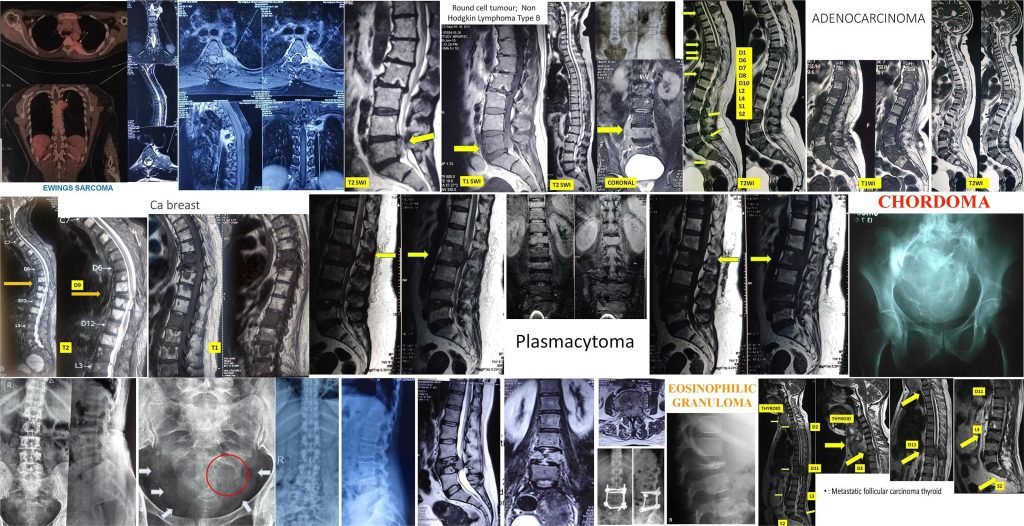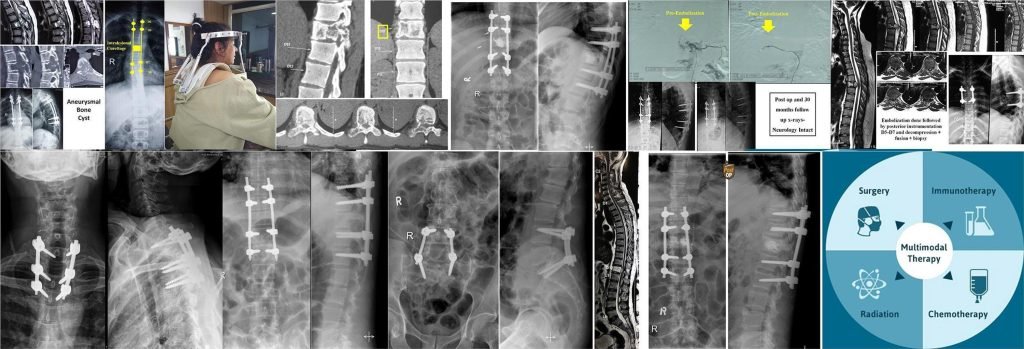

Primary Spinal Tumors
What Are Primary Spinal Tumors?
Primary spinal tumors are abnormal growths that develop directly within the spine or spinal cord. These tumors can occur in the bones of the spine (vertebrae) or within the spinal cord’s protective tissues. Unlike secondary tumors, which spread to the spine from other parts of the body, primary spinal tumors originate in the spine itself.

Ewing Sarcoma
Found in children or young adults, this tumor affects soft tissues and bones.

Causes and Risk Factors
The exact cause of primary spinal tumors is often unknown, but they may be linked to:
-
Genetic conditions, such as neurofibromatosis.
-
Radiation exposure.
-
Family history of tumors.
Why Seek Timely Treatment?
Delaying treatment can lead to:
-
Permanent nerve damage
-
Paralysis
-
Severe complications like loss of bowel or bladder control
Diagnosis of Primary Spinal Tumors
Early diagnosis is crucial. Your doctor may recommend:
-
MRI (Magnetic Resonance Imaging): A detailed scan to locate and assess the tumor.
-
CT (Computed Tomography) Scan: Helps evaluate bone involvement.
-
Biopsy: A small sample is taken to confirm whether the tumor is benign or malignant.

Treatment Options



